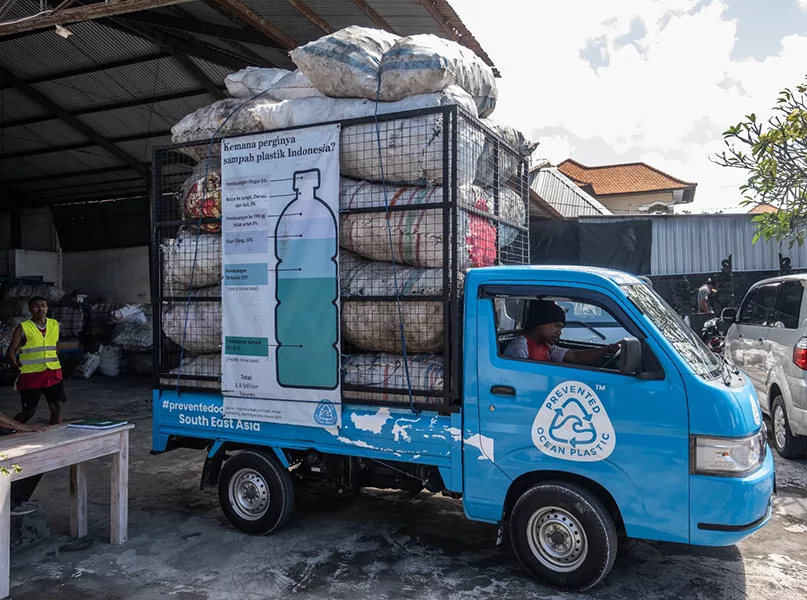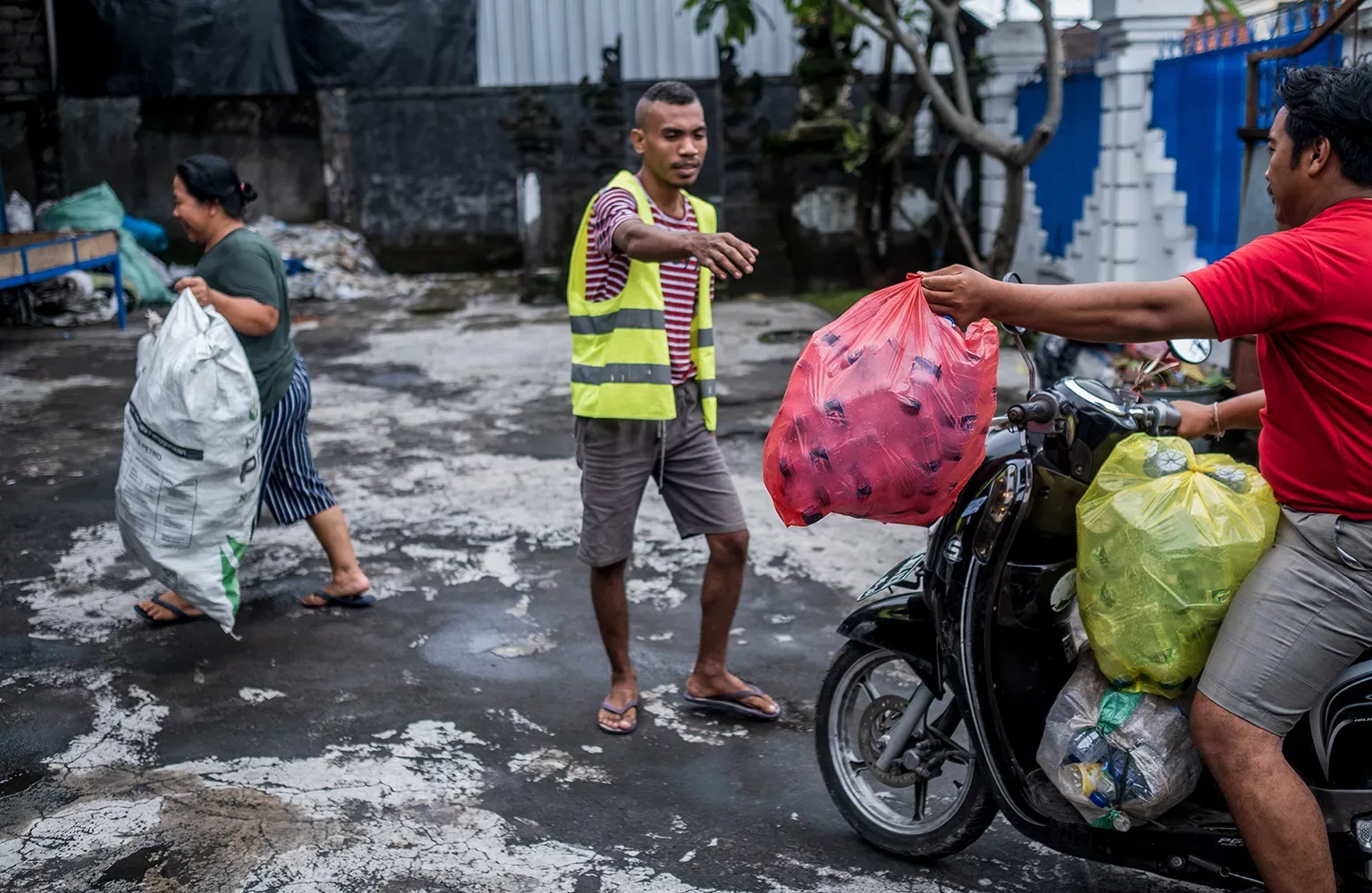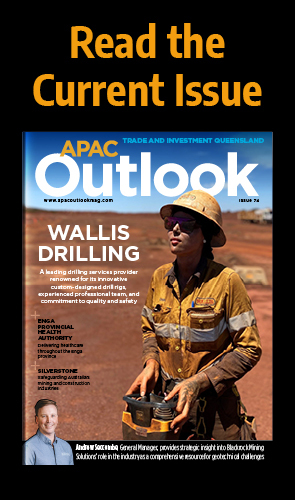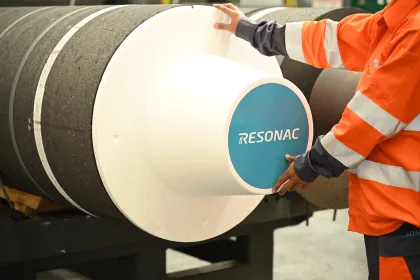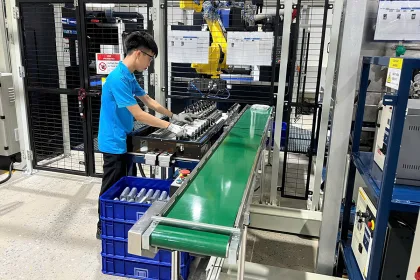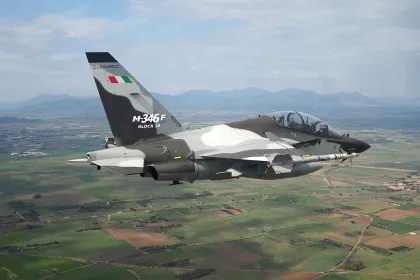ADDRESSING THE OCEAN PLASTIC PROBLEM
Since then, POPSEA has benefitted from various investments to help develop new infrastructure in the region.
“These infrastructure builds form part of our wider mission, announced on World Oceans Day 2023, to build 25 new collection centres in areas that need them by 2025.”
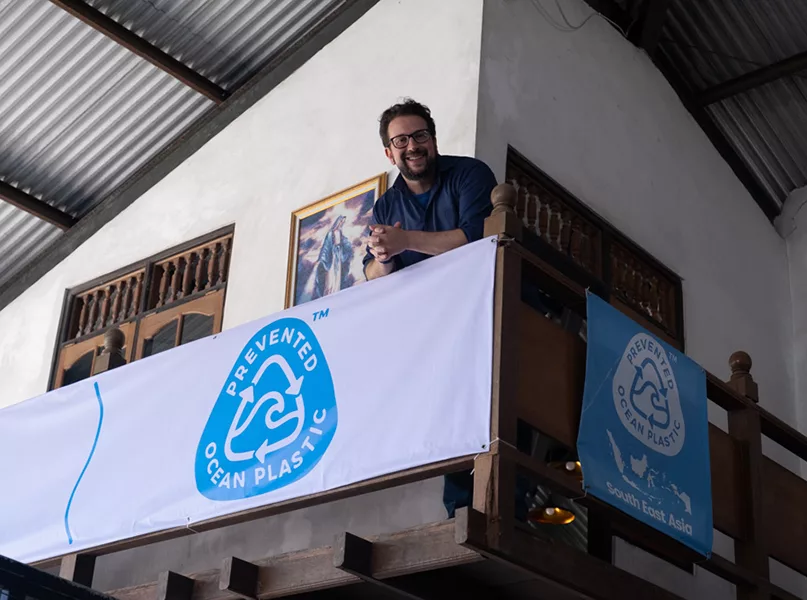
PARTNERING WITH LOCAL RECYCLERS
Since the beginning, Prevented Ocean Plastic has strongly believed in partnering with local recyclers to best provide what is needed for them and their region.
In order to facilitate a just transition at each level of the supply chain, the company understands that it’s also important to listen to the waste pickers and first collectors who are on the frontline.
“These groups directly inform the development of the programme and what we can do to best help them in each region,” says Schieir.
For example, the recent opening of a collection centre in Semarang on the northern coast of Central Java, Indonesia, was identified through a Circularity Assessment Protocol (CAP) conducted by the University of Georgia in the US.
The area was lacking in formal waste management infrastructure, so a larger aggregation centre was developed to process the region’s increased waste demands.
“We did the same in North Jakarta soon after and have since broken ground on multiple other sites to meet specific needs,” Schieir outlines.
“In addition to our work at collection centre and recycler level, we are sponsoring efforts that extend beyond our builds, such as our pilot Bank Sampah initiative to support more localised clean-up efforts.”
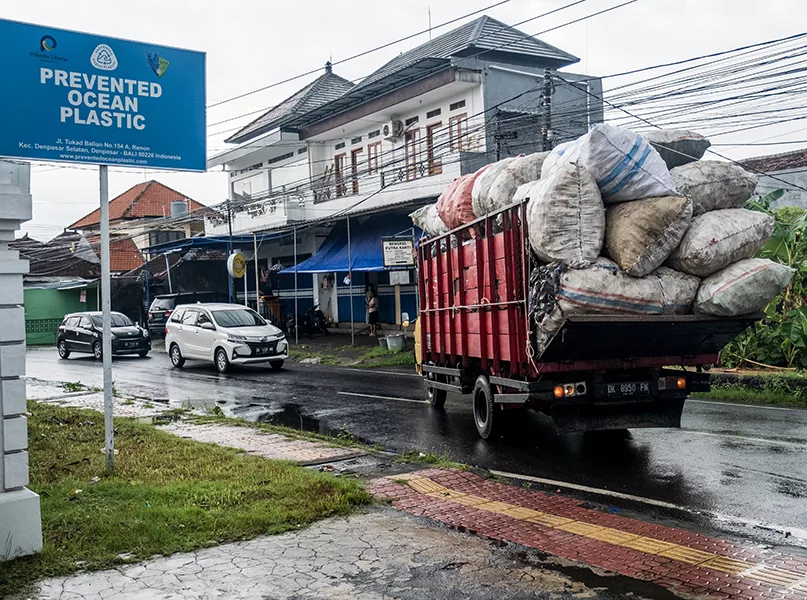
QUALITY AND TRACEABILITY
In the past, the recycling industry as a whole lacked clear guidelines or direction.
However, the introduction of the Prevented Ocean Plastic Standards, which have been signed by some of the world’s best recyclers, goes beyond mandated and regulatory guidelines to offer something that benefits everyone at each level of the supply chain.
“We take into account social and environmental factors so that people have dignified work, while ensuring quality and traceability for our end-users – the brands and companies who choose to bring our recycled plastic into their supply chain,” states Schieir.
By giving value to otherwise discarded and worthless plastic, POPSEA has encouraged clean-ups in areas most prone to ocean-bound plastic – covering four of the most populated islands in Indonesia – thus protecting the surrounding ocean and supporting the local economy.
As local recyclers and collectors directly inform the programme and its development, POPSEA is launching new initiatives to engage more directly with first collectors in order to better understand their needs.
“The recent expansion of the POPSEA truck programme is an example of this, as we can now get closer to the first collectors, reducing their travel time and the amount they need to carry,” Schieir informs us.
The nature of a just transition is to provide the best result for stakeholders at each level of the supply chain, which is why POPSEA’s vertically integrated model works so well.
“We’ve had the opportunity to take manufacturers and their clients on site visits, as we did last year with Spectra Packaging and Lush, so they can see the transformation and quality first-hand.”
